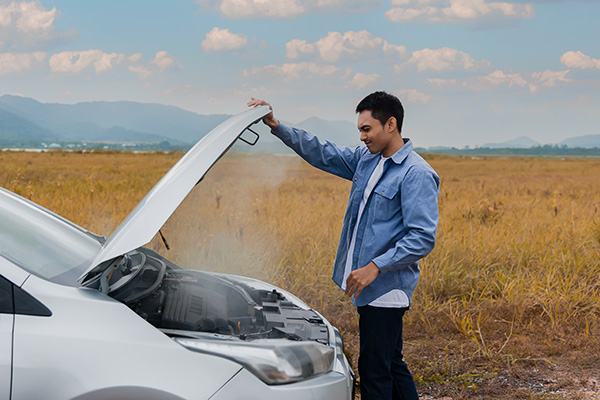
Are you tired of dealing with engine overheating issues that can leave you stranded on the side of the road? Keeping your engine cool is essential for optimal performance and longevity. We'll explain how proper cooling system maintenance can help you prevent engine overheating and ensure smooth travel.
Why Engines Overheat
Before discussing preventive measures, we must understand why engines overheat. Overheating occurs when the engine's cooling system fails to regulate its temperature effectively. Factors such as low coolant levels, coolant leaks, malfunctioning thermostats, or a faulty water pump can contribute to overheating. Ignoring these issues can lead to severe damage to your engine and costly repairs.
The Importance of Cooling System Maintenance
Maintaining your vehicle's cooling system is paramount to prevent engine overheating. Regular inspection and upkeep of cooling system components can help identify potential issues before they escalate into major problems. Here's how you can keep your cooling system in top condition:
Routine Coolant Checks
Coolant, also known as antifreeze, plays a vital role in dissipating heat from the engine. Periodically check the coolant level in the reservoir and ensure it's at the appropriate level. Additionally, inspect the coolant for signs of contamination or degradation, as old coolant loses its effectiveness over time.
Inspecting Hoses and Connections
The hoses and connections in your vehicle's cooling system are susceptible to wear and tear. Inspect hoses for cracks, bulges, or signs of deterioration and replace them if necessary. Tighten hose clamps to prevent leaks, ensuring a secure connection between components.
Testing the Thermostat
The thermostat regulates the flow of coolant through the engine to maintain optimal operating temperature. A malfunctioning thermostat can cause overheating issues. Test your thermostat periodically to ensure it opens and closes correctly. Replace it if it fails to function as intended.
Checking the Radiator and Water Pump
The radiator and water pump are critical components of the cooling system. Inspect the radiator for signs of damage or corrosion, and clean any debris that may obstruct airflow. Ensure the water pump functions correctly, as it circulates coolant through the engine. Replace the water pump if it shows signs of leakage or wear.
Flushing the Cooling System
Over time, contaminants can accumulate in the cooling system, compromising its efficiency. Periodically flush the system to remove sediment, rust, and other debris. Flushing helps maintain proper coolant flow and prevents clogs leading to overheating.
Additional Maintenance Tips for Engine Health
In addition to cooling system maintenance, there are other steps you can take to preserve your engine's health and performance:
- Regular oil changes: Clean oil lubricates engine components, reducing friction and heat buildup.
- Monitoring engine temperature: Keep an eye on the engine temperature gauge and promptly address any overheating signs.
- Avoiding heavy loads and extreme conditions: Excessive strain on the engine can lead to overheating. Avoid towing heavy loads in high temperatures, and monitor engine performance during extreme driving conditions.
Common Car Cooling System Questions
How often should I check the coolant level in my vehicle?
Coolant levels should be checked regularly, ideally every month or before a road trip.
What are the consequences of ignoring engine overheating issues?
Ignoring engine overheating issues can lead to severe damage to engine components, potentially resulting in costly repairs or engine failure.
Can I drive my vehicle if it's overheating?
It's not advisable to drive a vehicle that's overheating, as continued operation can cause further damage to the engine. It's best to pull over safely and address the issue before resuming your journey.
Don't let engine overheating ruin your journey. Trust the experts at Precision Import Repair to keep your cooling system in top condition. Book your maintenance appointment now for peace of mind on every drive.